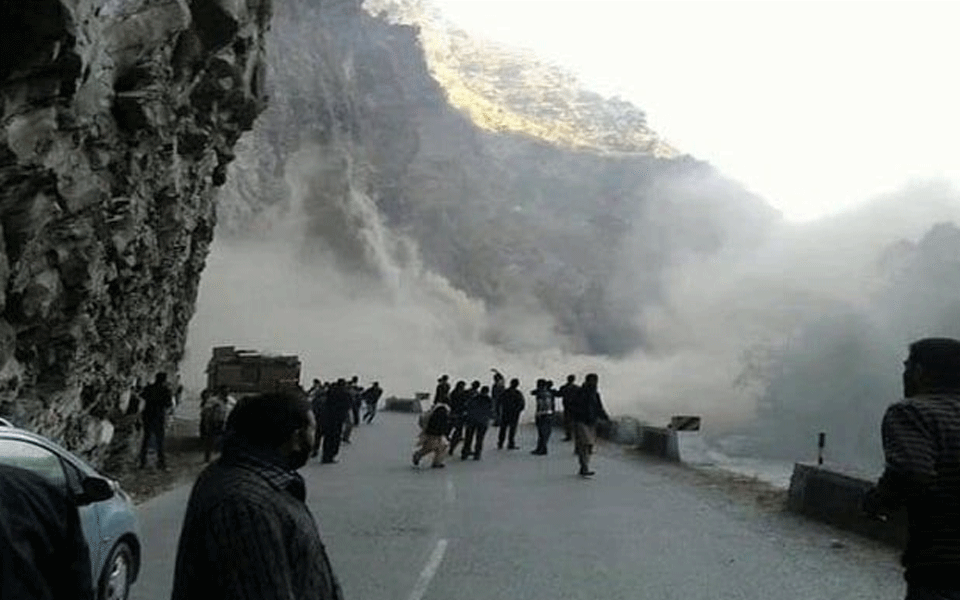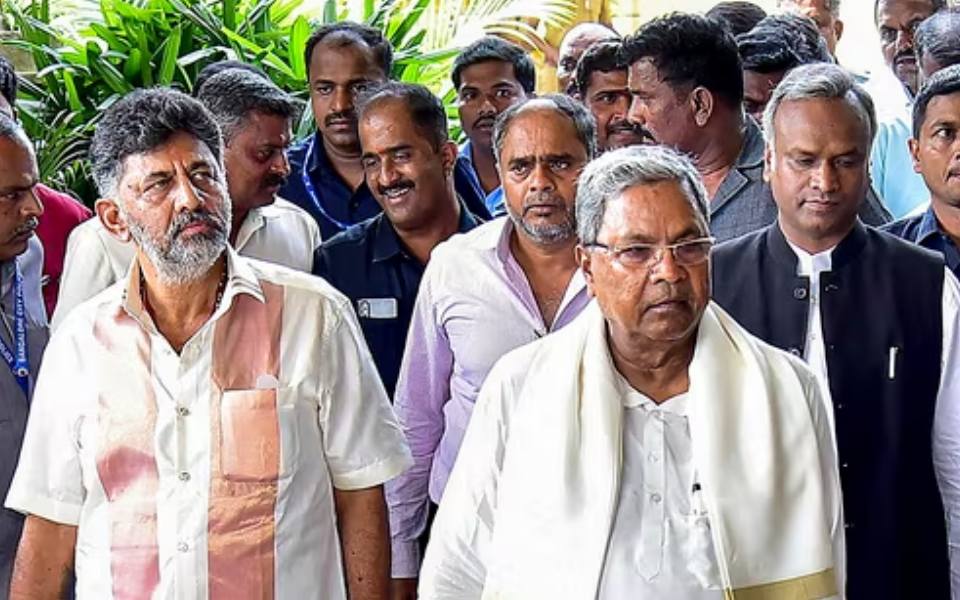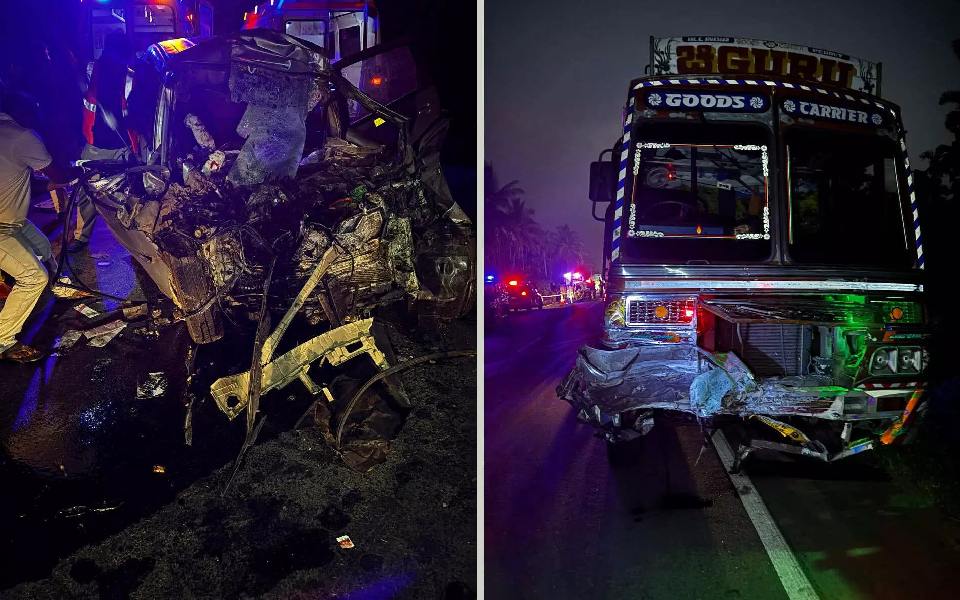Shimla, Aug 13: Heavy rains in Himachal Pradesh claimed five lives and hundreds remained stranded across the state after incessant rainfall triggered landslides and snapped road links, an official said on Monday.
Three persons were killed in Mandi district in landslide incidents, while a boy was washed away in the swollen Kaushalya river near Parwanoo in Solan district.
Reports said five persons were buried under a landslide near Chakla village in Kandaghat in Solan district. One of them reportedly died. Rescue work is still on.
After heavy overnight rains, most of the roads in the interiors of the state remained closed to traffic on Monday, stranding hundreds of travellers and commuters.
The Chandigarh-Manali National Highway-21 has been closed for vehicles near Mandi town, an official said. Likewise, traffic on the Chandigarh-Shimla National Highway-5 was hampered near Chakki Ka Mor in Solan district.
The Mandi-Pathankot, the Chamba-Pathankot and the Shimla-Nahan national highways were blocked by landslides.
Vehicular movement in Kinnaur district remained suspended since a large stretch of the Hindustan-Tibet Road has been under landslides at several points.
An official said the road network in the higher reaches of Kinnaur, Shimla, Chamba, Mandi, Kullu and Sirmaur districts was the worst affected and efforts were being made to reopen it.
As a precautionary measure, all schools and educational institutes in Shimla, Solan, Kullu, Hamirpur, Kangra, Kinnaur and Mandi districts were closed for the day.
According to the Met office here, moderate to heavy showers have occurred in most parts of the state since Sunday.
Paonta Sahib in Sirmaur district recorded the highest rainfall in the state at 239 mm, while it was 238 mm in Sujanpur Tira town in Hamirpur district
Nehri town in Mandi district recorded 235 mm in the past 24 hours, while Palampur town recorded 212 mm.
It was 172 mm in the state capital, 142 in Dharamsala town, 98 mm in Kasauli, 94 mm in Solan town and 57 mm in Dalhousie.
The weather office has forecast heavy rains across the state till Tuesday.
Let the Truth be known. If you read VB and like VB, please be a VB Supporter and Help us deliver the Truth to one and all.
Mysuru/Bengaluru, May 12 (PTI): Karnataka Chief Minister Siddaramaiah on Monday indicated that the Congress government’s event in the Vijayanagara district to mark two years of the party in power is likely to be held on May 20.
He said his government had walked the talk by fulfilling the promise it had made to the people of the state.
The Cabinet on Friday decided to indefinitely postpone the government’s event marking two years, in the view of the military conflict between India and Pakistan.
"We want to do it (celebration event), because when we decided in the Cabinet to postpone it, the ceasefire was not yet announced," Siddaramaiah said in response to a question.
Speaking to reporters in Mysuru, he said Congress general secretaries Randeep Singh Surjewala and K C Venugopal have already communicated to party leaders Mallikarjun Kharge and Rahul Gandhi about the postponement.
"They (Surejewala and Venugopal) will now check with them (Kharge and Gandhi) and let us know. We want to organise the event, " he added.
Responding to a question as to how he rates his government's performance, Siddaramaiah said, "If there is any government that has walked the talk, it is our government. We have performed as promised."
Not wanting to respond to a question if the cabinet reshuffle was on the cards, the CM said the media will be informed when it is done.
To mark the second anniversary of its rule, the Congress government is planning to distribute one lakh title deeds to eligible beneficiaries, whose "undocumented habitations" have been declared as revenue villages, during the event.
Earlier, speaking to reporters in Bengaluru, Deputy Chief Minister and state Congress chief D K Shivakumar too said preparations are being initiated to organise an event at Vijayanagara on May 20.
"We had decided to postpone it considering the situation at the border, but now with the ceasefire in place, we want to do it," he said.
All district in-charge ministers have been asked to visit assembly segments and to hold meetings with officers and party karyakartas separately there. The government also plans to distribute one lakh title deeds to eligible beneficiaries during the two year's celebrations, as committed in the manifesto, he said.
"Congress party leadership will also be invited for the event," Shivakumar added.





